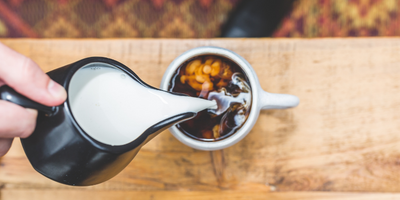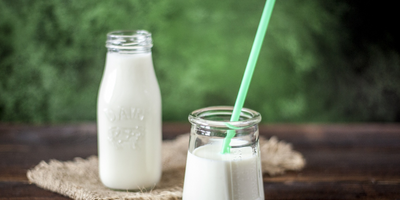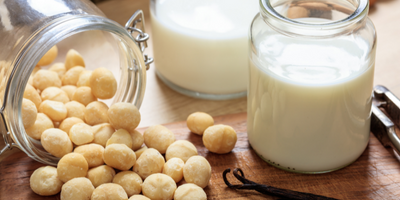Milk & Coffee - quick history & tips
Posted by Simone, The Coffee Girl on 19th Apr 2022
When it comes to coffee, there are many debates over when milk was first added to coffee. Some say that the practice began in Ethiopia in the seventh century, while others say that it originated in Turkey a few centuries later. However, one thing is for sure: milk and coffee have been intertwined for centuries.

The history of coffee.
Origins in Africa to popularity in Europe.
The history of coffee is a fascinating tale that dates back to the early days of civilization. Originating in Africa, coffee quickly became popular throughout Europe and the Middle East. Its popularity was due in part to its stimulating effects on the mind and body, as well as its ability to improve productivity. Today, coffee is enjoyed by people all over the world, making it one of the most popular beverages on earth.
Coffee is a globally loved drink that has been enjoyed for centuries. The origins of coffee are still unknown, but it is widely believed that the drink was first created in Yemen. It is also speculated that coffee was first mixed with milk as early as 815 AD. However, there is no definitive proof to support either claim. Coffeehouses began to pop up all over the Middle East in the 17th century and it was during this time that milk began to be added to coffee drinks.
When was milk was first added to coffee?
There are many different stories about how milk was first added to coffee. The most widely accepted version is the Italian Count Luigi Torrigiani (1866-1947) who, in 1884, first added milk to his coffee at his cafe in Milan. Coffee is a key ingredient in the coffeehouse. Coffeehouses were originally social clubs that met to discuss politics, economy, and news. The term "coffee house" is also used for other establishments that serve coffee, such as restaurants and nightclubs.

The benefits of adding milk to coffee.
Coffee is a popular beverage enjoyed by many people around the world. Adding milk to coffee gives it a sweeter flavor and increases its nutritional value. There are many reasons why people add milk to their coffee. Some believe that it gives the coffee a sweeter flavor, while others believe that it increases its nutritional value. Adding milk also makes the coffee more filling and satisfying, which is why it is often preferred over alternative beverages such as tea or soft drinks.
The effects of adding milk to coffee.
Adding milk to coffee can change the flavor and consistency of the drink. Milk also adds calcium and other nutrients, which can improve digestion. Some people prefer a thicker coffee with milk, while others find that a lighter drink is more satisfying.
The best way to add milk to coffee.
There is no one right way to add milk to coffee. Some people prefer to add milk right after the coffee is brewed, while others find that the milk spoils quickly.
Avoid over-milking your coffee.
The most common mistake people make when adding milk to their coffee is over-milking. The best way to avoid using too much milk: Adding too much milk can make the coffee drinker's stomach feel bloated and uncomfortable.
What sort of milk is good with coffee?
Some people like to drink coffee black, while others enjoy adding milk and cream to their drinks. However, what kind of milk should you use with coffee?

Dairy milk varieties for coffee.
The main types of dairy milk are cow's milk, goat's milk, sheep's milk, and soy milk. Most people think that cow's milk is the best choice for coffee because it has a strong flavour and contains high levels of protein and calcium. Some people also like to add goat's or sheep's milk to their coffee because they think it adds an interesting texture and flavour.
Non-dairy milk alternatives for coffee.
Are you looking for a non-dairy milk alternative for your daily cup of coffee? Here are six options to consider: almond milk, soy milk, hemp milk, rice milk, oat milk and cashew milk. Each has its unique flavour and health benefits that make it a great choice for coffee drinkers who prefer non-dairy products, are lactose intolerant or are vegan. Some people just like the nuttier taste and texture on non-dairy kinds of milk!

Conclusion.
Whether you like your coffee with or without milk, there are many ways to make your coffee taste better. There is no one correct way to make coffee, but the best way may be the way you like it most, and the easiest way for you to make it!

